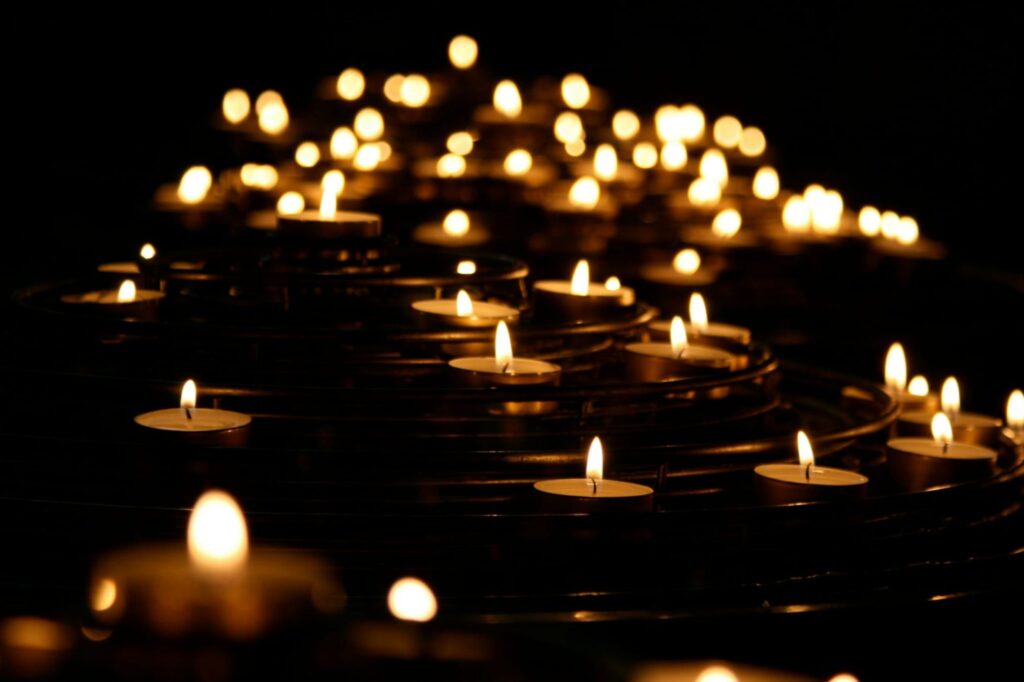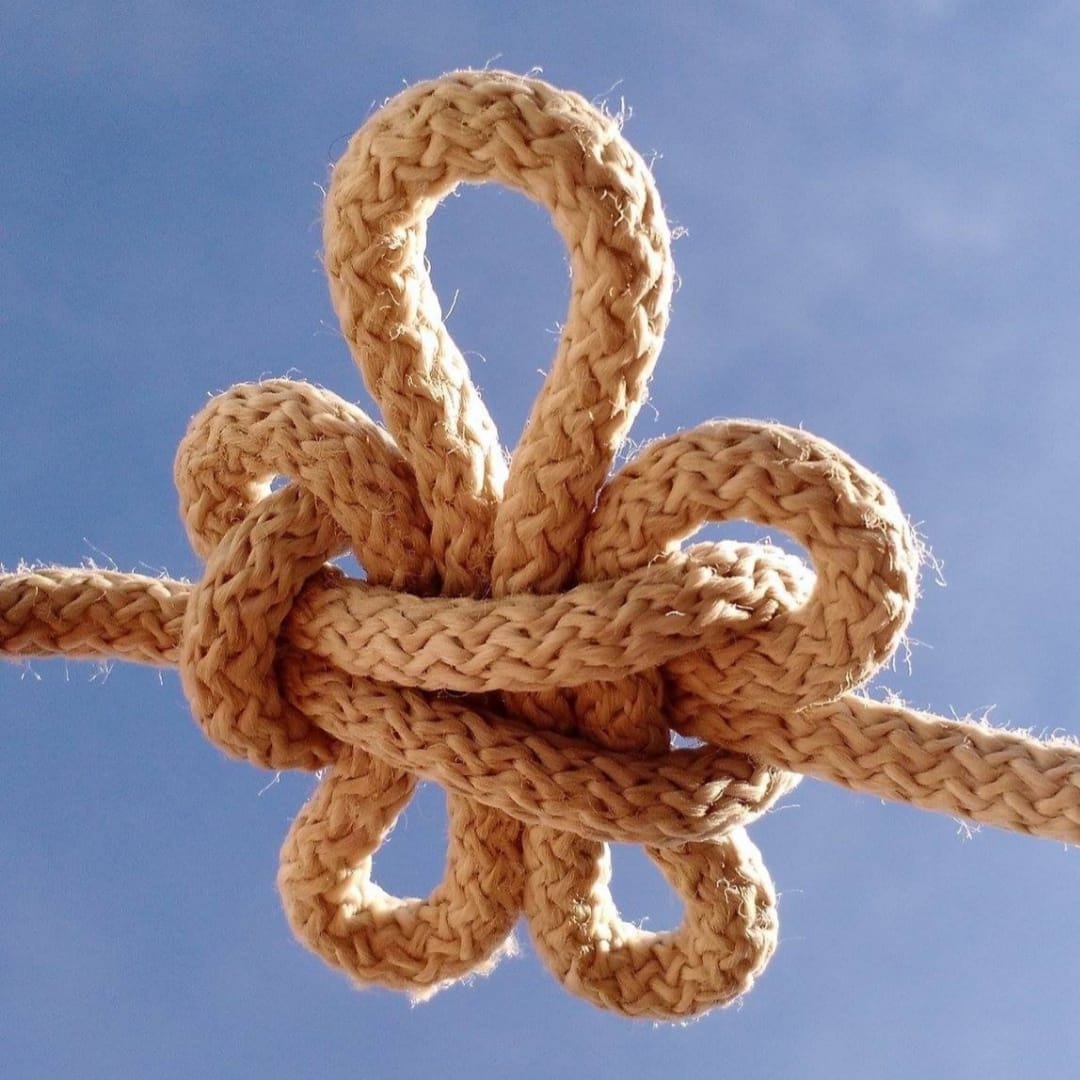Grief is an indescribable journey – deeply personal and intricate. It winds through the very essence of our being, touching upon our every emotion and thought. It is woven with threads of sorrow, love, anger, joy, confusion, numbness and sometimes, relief.
Each person’s experience with grief is unique. Their journey through it is shaped by their relationship with the person they’ve lost, their own personality, and their experiences in life.

The unique nature of grief
Grief is often seen as a singular emotion or a straight path. Indeed, the five Stages of Grief suggest that denial, anger, bargaining, and depression occur in order until acceptance arrives.
However, grief is far more complex. It is a maze of emotions that knot and unknot in unexpected ways.
Acceptance might give way to shock.
Joy might be tinged by guilt.
The numbness might fill with anger.
This unknowingness of grief – the exact labyrinth we traverse – means that no two people will grieve in the same way, even if they are mourning the same loss.
It also means that nobody grieves wrong.
Everyone grieves perfectly correctly for them – the loss they feel is theirs.

The emotional threads of grief
Our emotions – each like a thread on a spool – are vast and varied.
For some, grief might come as intense sadness and longing. For others, it might appear as anger or frustration. Guilt and shame are not uncommon. Moments of joy and gratitude as happier memories come to the fore…
And on their own, each emotion can be overwhelming. But together, they knot and tangle, making a complex web that can be difficult to pick through.
Yet, each emotion is important and valid in its own right.
Allowing ourselves to feel the laughter, tears, and frustration can be a crucial step in the healing process.

The role of relationships
Who they are and what they mean to us plays a significant role in how we experience grief upon their death.
The depth and nature of our bond with them can influence the intensity of our feelings and the duration of our grief.
For the death of a parent, child, partner, or friend – each carrying its own weight and emotions – there might be felt a profound sense of loss and loneliness.
For a distant relative or an acquaintance, their death might evoke more muted and transient feelings.
Moreover, how they die – whether it’s sudden or expected – can also shape our grieving process.
An expected death, for example, might allow for preparation and bring relief with the dissipation of their pain.
A sudden death, on the other hand, might feel like a body blow of shock and disbelief, adding layers of trauma that need to be processed alongside the grief.

Personal coping mechanisms
How someone copes with grief will be as individual as them. The combination of comfort, understanding, time, and space they need is as unique as their likes and dislikes, beliefs, and circumstances.
Some people find solace in talking about how they feel with family, friends, or a therapist.
Others turn to their creativity (such as writing, painting, or music) to express themselves.
Physical activities like walking, running, swimming, or yoga provide others with a release.
Some find comfort in solitude, preferring to process their grief internally.
Ritual and belief brings peace to some people, too.
Others still might focus on tasks, work, or on the remaining people they love.
No matter how someone copes, it is essential we respect and honour their method.
After all, there is no right or wrong way to grieve.

The Non-Linear Path of Grief
Being a knotted tangle of emotional threads, grief can be a challenge to move through.
Just when you feel on the mend, a song, scent, or memory hits with unexpected emotion and feels like a setback.
But rather than being a setback, this is a natural part of the process.
Grief isn’t set in stone. It offers no menu or map and doesn’t even recognise the passage of time.
It can feel distant, manageable, overwhelming, and all-consuming – sometimes at the same hour.
And it is essential to allow oneself the grace to experience these fluctuations without judgment.

The Importance of Support
While grief is a personal journey, support from family and friends can be invaluable. Also, support from a bereavement group or therapist can offer a much-needed ear or shoulder and bring words of encouragement.
However, it is crucial to communicate one’s needs clearly.
Those providing support might not always know the best way to help, and expressing what one needs – be it a conversation, a distraction, or their presence – can make a significant difference.

Finding Meaning and Moving Forward
Over time – with emphasis on time – many find ways to integrate their grief into their lives.
This is not to say that the person who has died is forgotten. More, their memory and meaning finds a way to be included into the movement forward of life.
Things like:
- Marking their birthday with their favourite treat.
- Planting their favourite flower in the garden.
- Keeping up their inclusion in family events and life.
- Talking about them often.
Such things (and many more) can bring a sense of continued connection with the person who has died.
In addition, as they settle alongside grief, many feel more resilient in the face of life. They might find themselves with a greater appreciation for the little things or a better understanding of themselves.
While grief is a journey of knotted emotions, it can also be one of profound transformation.

In closing
Grief is an indescribable journey – deeply personal and intricate. It is as unique as the person experiencing it and as unique as the person who has died. It can’t be rushed or pigeonholed. Grief can only be as it is within us.
There is no right or wrong way to grieve.
By appreciating how unique our loss experience can be, we can better support ourselves and others.
By embracing its knotted emotions and allowing them to unfold in their own time, it can ultimately lead us to healing and a renewed sense of life.

